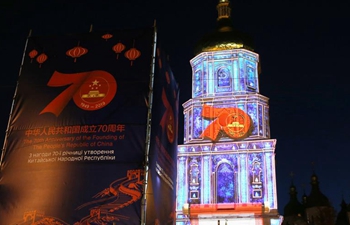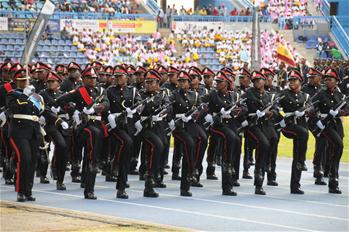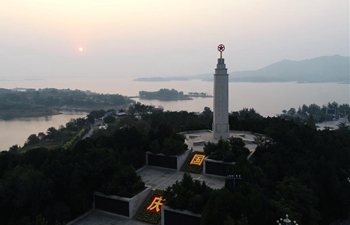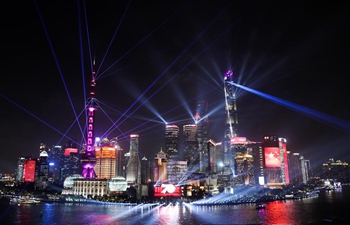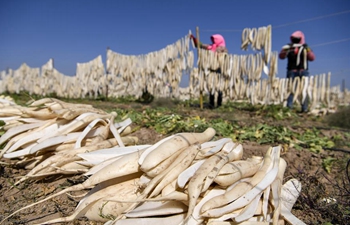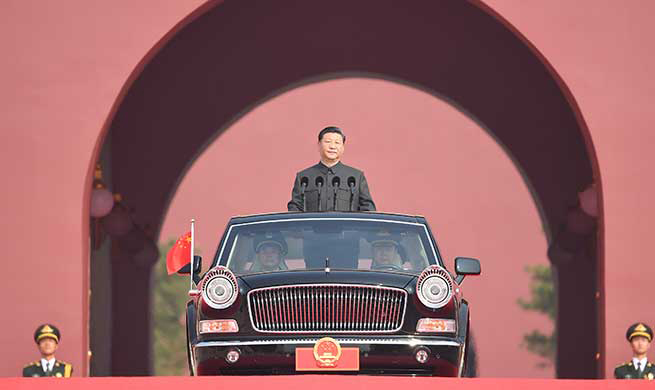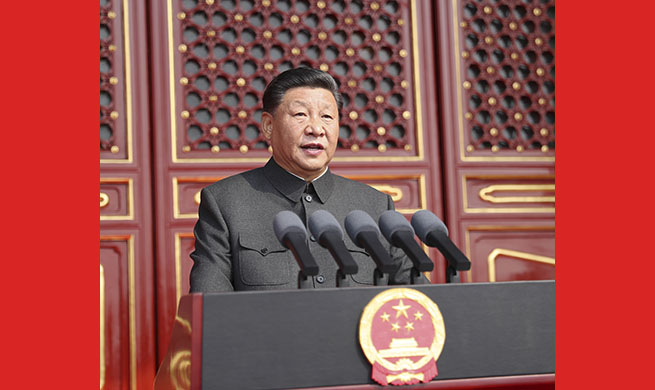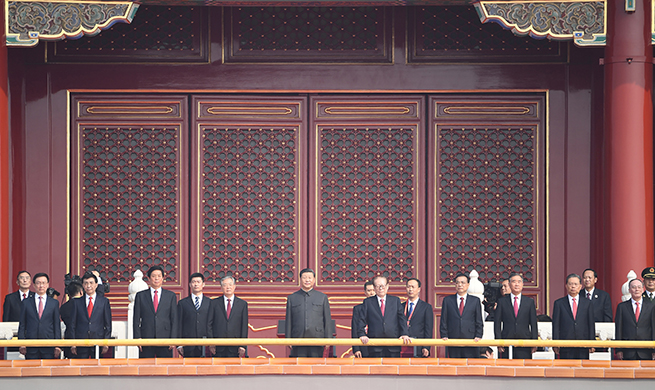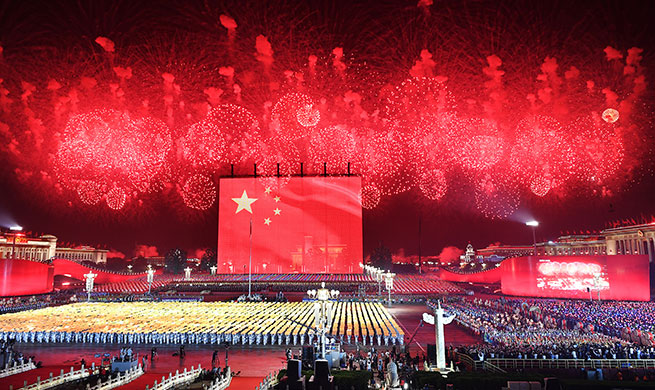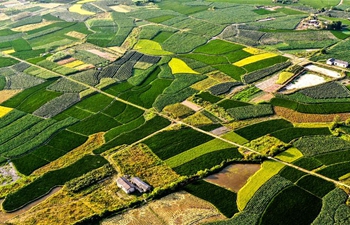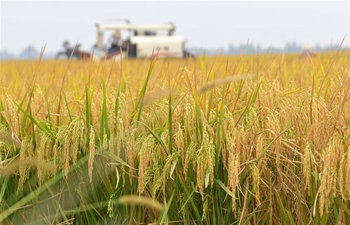NEW YORK, Oct. 2 (Xinhua) -- A symphonic oratorio was premiered in Midtown Manhattan on Tuesday night, honoring Chinese workers' contribution to completing the first transcontinental railroad across the United States in the 19th century.
The 50-minute play, titled "Men of Iron and the Golden Spike," featured six soloists and a chorus consisting of both Chinese and American singers, telling the touching story through singing and recitals in Chinese, English and Cantonese.
Familiar-sounding melodies for Chinese audience, such as the blaring "Coolie Work Chant" and the gentle Cantonese lullaby "Moonlight Shines" were repeatedly sung throughout the nine-movement piece to depict the laborers' tenacity under life-threatening work conditions and their sorrow while being tens of thousands of miles away from home.
Over 2,000 people at the Stern Auditorium/Perelman Stage of Carnegie Hall gave a standing ovation and rounds of "Bravo" when the show's creators appeared on stage after the conclusion of the performance.
The oratorio was a significant part of the concert titled "From the Middle Kingdom to the Wild West," a highlight of the ongoing 2019 China Now Music Festival in New York. Following the path of the railroad's westward expansion, the show will be performed at Stanford University in California on Oct. 6.
The festival was launched by the U.S.-China Music Institute of the globally renowned Bard College Conservatory of Music, which is located in Annandale-on-Hudson, some 100 miles (160 km) north of New York City.
This year marks the 150th anniversary of the completion of the 3,077 km-long transcontinental railroad, which joined the Eastern and Western halves of the United States and helped transform the nation into a modernized powerhouse.
Before its completion, the journey between the two coasts took as long as six months, and the vast land of the west was largely undeveloped.
Some 20,000 or more Chinese laborers, mostly male immigrants from south China's Guangdong province, constituted the major force working for the Central Pacific Railroad Company in building the western portion of the railway from Sacramento, California between 1863 and 1869.
It was a feat once deemed impossible to accomplish due to the dangerous conditions along the designed route. However, hard-working and smart Chinese laborers managed to conquer all predicaments, tunneling through precipitous Sierra Nevada mountains inch by inch and laid tracks on roadbeds across deep valleys.
Living in an era when Chinese immigrants were discriminated and treated unfairly by the mainstream U.S. society, the laborers earned 50 percent to 70 percent less than their Irish peers, despite being as capable as them, if not more so.
On May 10, 1869, a celebration marking the completion of the transcontinental railroad was held at the Promontory Summit in Utah state, where the eastern and western portions of the railway were joined by a ceremonial "Golden Spike" driven into the ground.
However, no Chinese "men of iron" were invited to witness the celebration despite years of sweat and blood and hundreds of lives lost to dynamites, avalanches and other accidents during the construction.
No records of their names could be found today. The only trace they left behind was a ship that carried the ashes of 1,200 laborers back to their homeland in the mid-19th century.
After learning about the story five years ago, Cai Jindong, director of the U.S.-China Music Institute and art director of the China Now Music Festival, decided to create a musical piece commemorating the unsung heroes who were of the same roots as himself.
Cai reached out to two of his good friends, Zhou Long and Su Wei, who became the composer and librettist respectively for the project, while taking the post of conductor himself. All three musicians were born and raised in China and have been prominent figures in the U.S. academia and music world for decades.
Prompted by a sense of responsibility to spread the story of their deceased countrymen, the musicians traveled around to collect as many historic materials as possible from museums and colleges in California and villages in Guangdong.
During an earlier interview with Xinhua, Cai said the Chinese laborers' story was so under-appreciated that even some Chinese Americans regarded it as something close to a "humiliation."
However, he said, as China's international status keeps rising, the Chinese communities in the United States gradually gained confidence in themselves and started to see it from a different perspective.
"We Chinese contributed a lot to the modernization of the United States. It was an episode of history that is actually very splendid and meaningful," he noted.
Zhou Long, a Pulitzer-winning composer, told Xinhua that through telling the story in the form of art on a stage as famous as the Carnegie Hall, the story could reach more people in the United States and beyond.
The concert on Tuesday also featured Zhou's new concerto for orchestra -- The Classic of Mountains and Seas, which was a music map inspired by "ancient supernatural aesthetics" of China, as the composer depicted.
Rolling out a series of concerts and lectures under the theme "China and America -- Unity in Music," the second China Now Music Festival also celebrates the 40th anniversary of the establishment of diplomatic relations between the two countries.
"We hope to bring Chinese and American people closer through music and make them appreciate each other's culture, which can serve well in the development of bilateral ties," said Cai.

